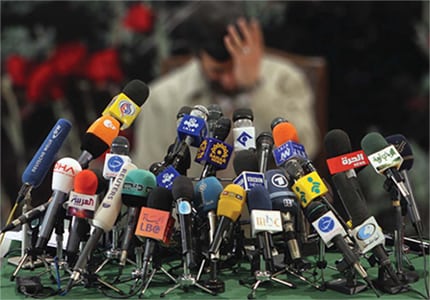
 People sometimes say “there's no such thing as bad press” after something regrettable happens and it gets picked up by the media. The myth rests on the assumption that even the most detestable coverage is still coverage, and there has to be a silver lining in being top-of-mind.
People sometimes say “there's no such thing as bad press” after something regrettable happens and it gets picked up by the media. The myth rests on the assumption that even the most detestable coverage is still coverage, and there has to be a silver lining in being top-of-mind.
The very existence of crisis communications as an arm of the public relations discipline, however, would seem to give the lie to the oft-repeated maxim. Crisis experts specialize in minimizing the damage done by bad press and reestablishing trust.
But there has to be some kind of truth in a cliché, right? Just look at presidential candidate Donald Trump. Constantly a controversial figure, Trump’s campaign has seen success from messaging that is nothing if not polarizing. He still stands strong at the front of the GOP nomination race, according to a recent poll by The Wall Street Journal and NBC News.
And it’s not just Trump’s run for president that’s putting the old truism to the test. Some of the biggest headlines of the tail end of 2015 offer a glimpse into the reality of the dogged expression. Let’s take a look at some of the biggest PR crises of recent months and see if all that bad press has a silver lining.
Chipotle: The fast-casual chain that was once the darling of Wall Street has seen a rough couple of months. From a now-infamous E. coli outbreak in the Pacific Northwest, to the spread of a norovirus in Boston, the company is in the midst of a dangerous PR hurricane. It’s still too early to tell how Chipotle will come out of this, but it’s not looking great.
Volkswagen: After the EPA released findings that the German automaker cheated on emissions tests, the bad news just kept coming as investigators looked into the company’s vehicles. According to The Wall Street Journal, sales of Volkswagen cars in the United States fell 15%, with overall sales down 2.2%, in November.
Martin Shkreli and Turing Pharmaceuticals: CEO of Turing Pharmaceuticals Martin Shkreli came under intense scrutiny after his company obtained the manufacturing license for Daraprim, a drug used to fight infections and an essential medication for HIV patients, then raised the price by more than 5,000%. Now another one of his companies, KaloBios Pharmaceuticals, is planning to raise the price of a drug that treats Chagas disease. This move may be seen as an example that bad PR doesn’t change much about the reality of business. But, due in large part to the anger generated from Shkreli’s first price hike—along with similar activates by other pharma companies—a U.S. Senate committee is investigating how the industry sets prices, which has investors in the industry worried. The Associated Press also reported that Turing Pharmaceuticals is under investigation by the New York state attorney general for antitrust concerns.
Donald Trump: It’s still unclear if the presidential hopeful’s campaign has had a significant impact on his businesses. The Chicago Tribune reported that there’s little evidence of a substantial impact on his various holdings, but there has been some negative backlash. One of the Persian Gulf region’s largest home-retail chains said it would stop selling “Trump Home” goods in its 170 stores in the wake of Trump’s comments.
The degree of monetary loss varies rather significantly in each of these instances, but what they all share is either an actual negative outcome as a direct result of bad press, or the prospect of future problems for the company.
Follow Mark: @MarkRenfree
